Press the right key for the next slide (or swipe left)
also ...
Press the left key to go backwards (or swipe right)
Press n to toggle whether notes are shown (no equivalent if you don't have a keyboard)
Press m or double tap to see a menu of slides
Watch Out, Here Come Multiple Quantifiers
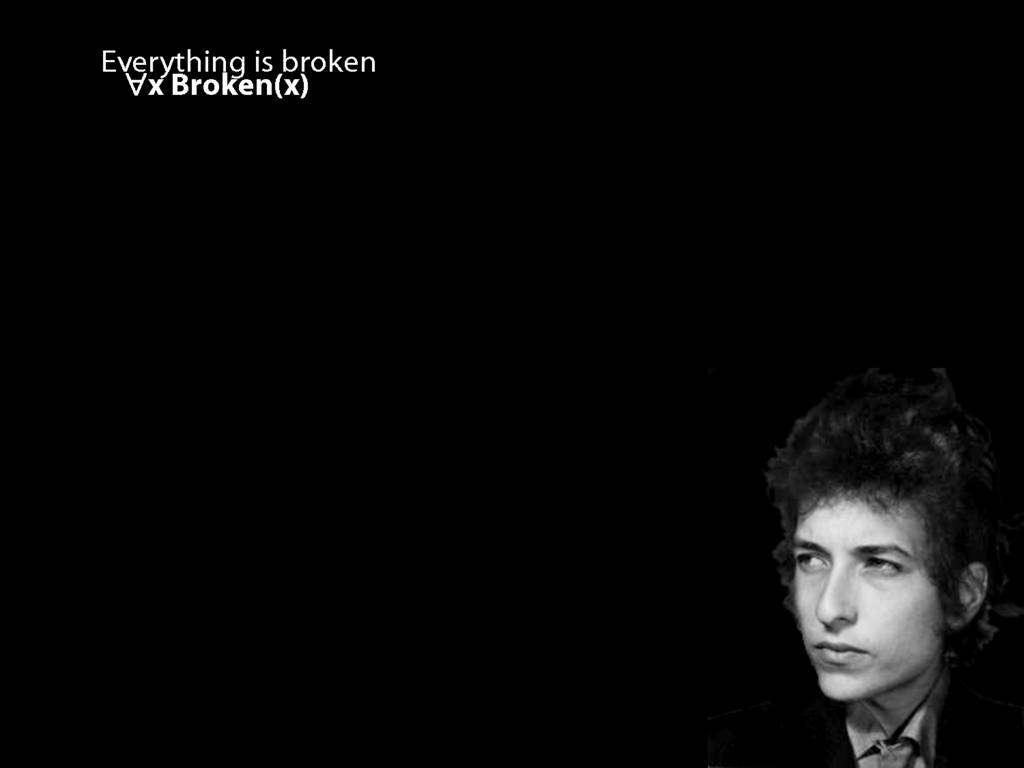
Let me give you a brief history of our engagement with quantification.
We started with the simplest case.
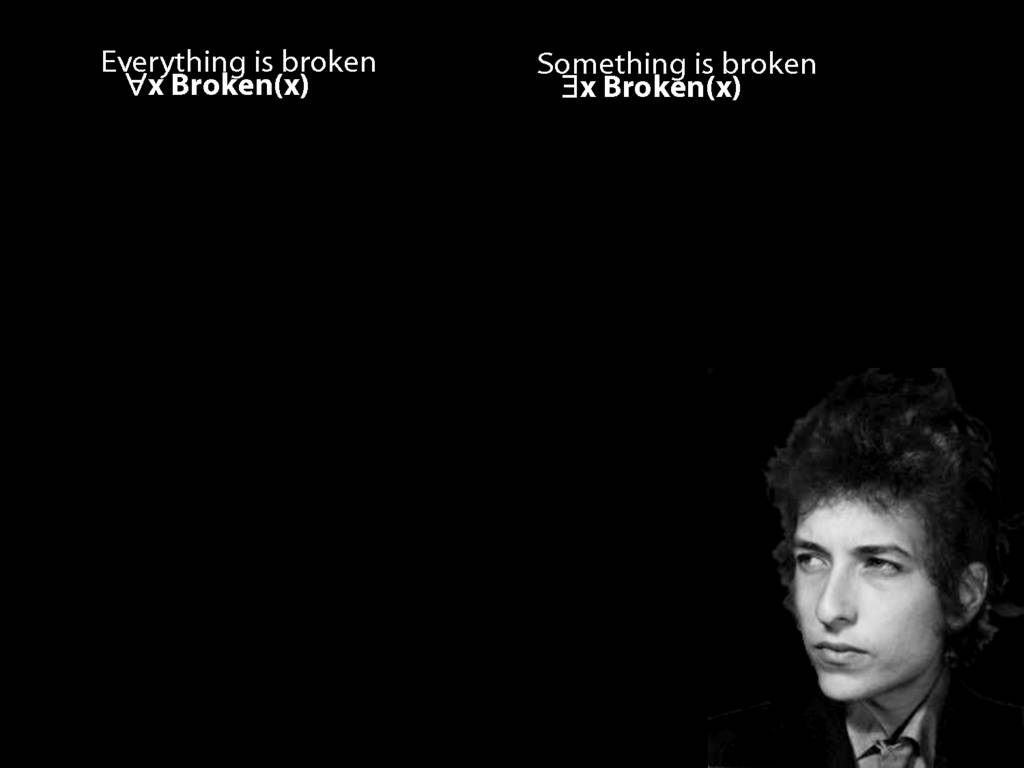
This sort of thing is great if you're a poet, but not much use otherwise.
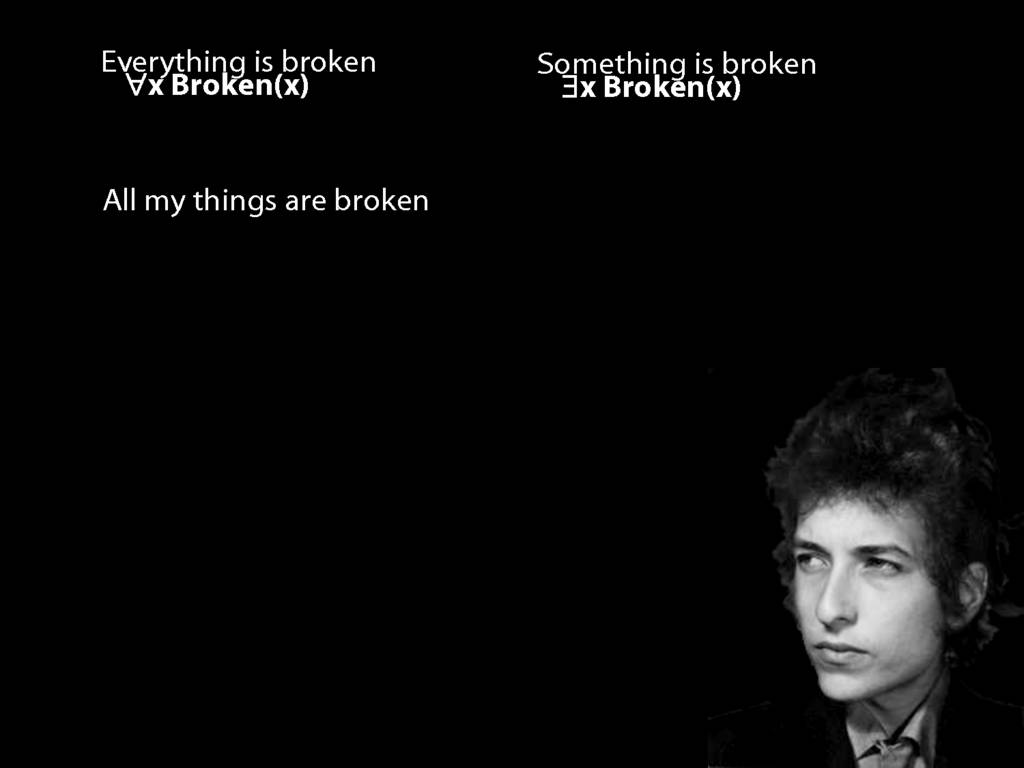
Even Aristotle knew way, way back before the internet that it was necessary, in order to do useful logic,
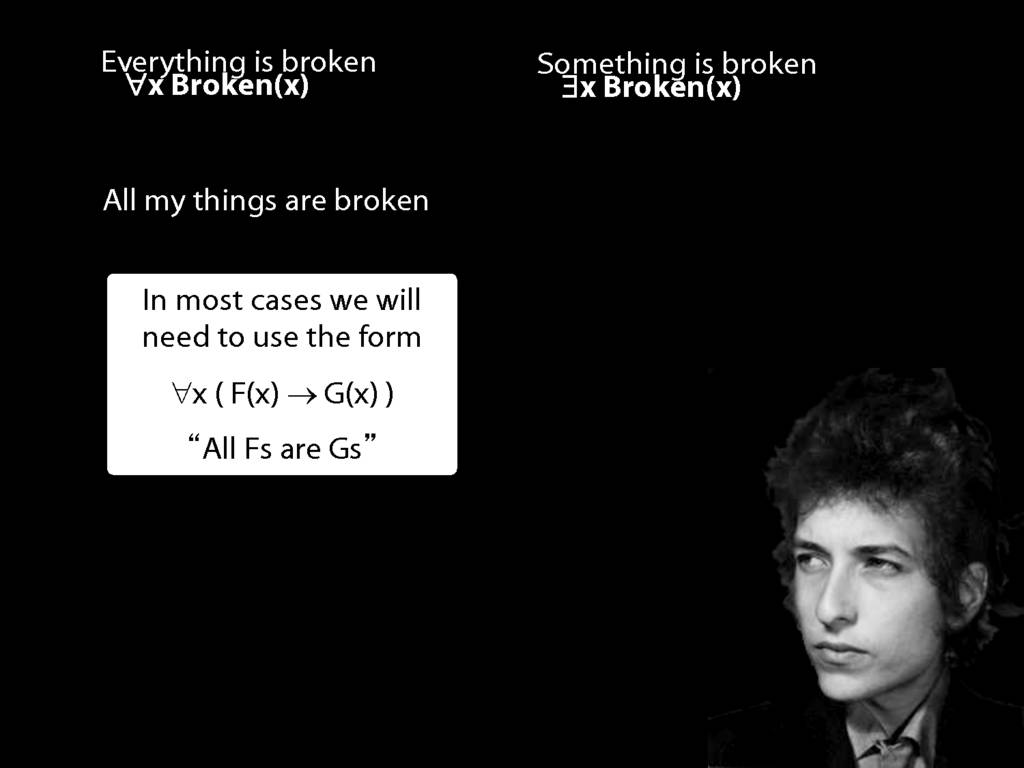
to have more sophisticated forms of expression in our formal language.
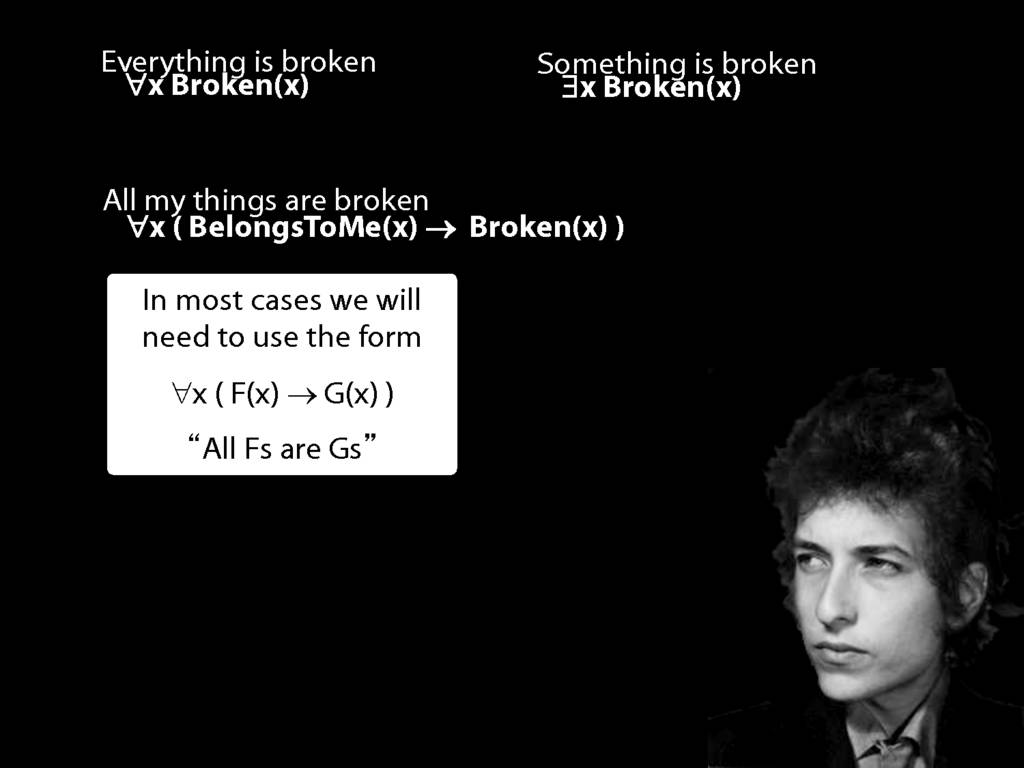
And this was great, I mean people were really happy with this for like, 2000 years or more,
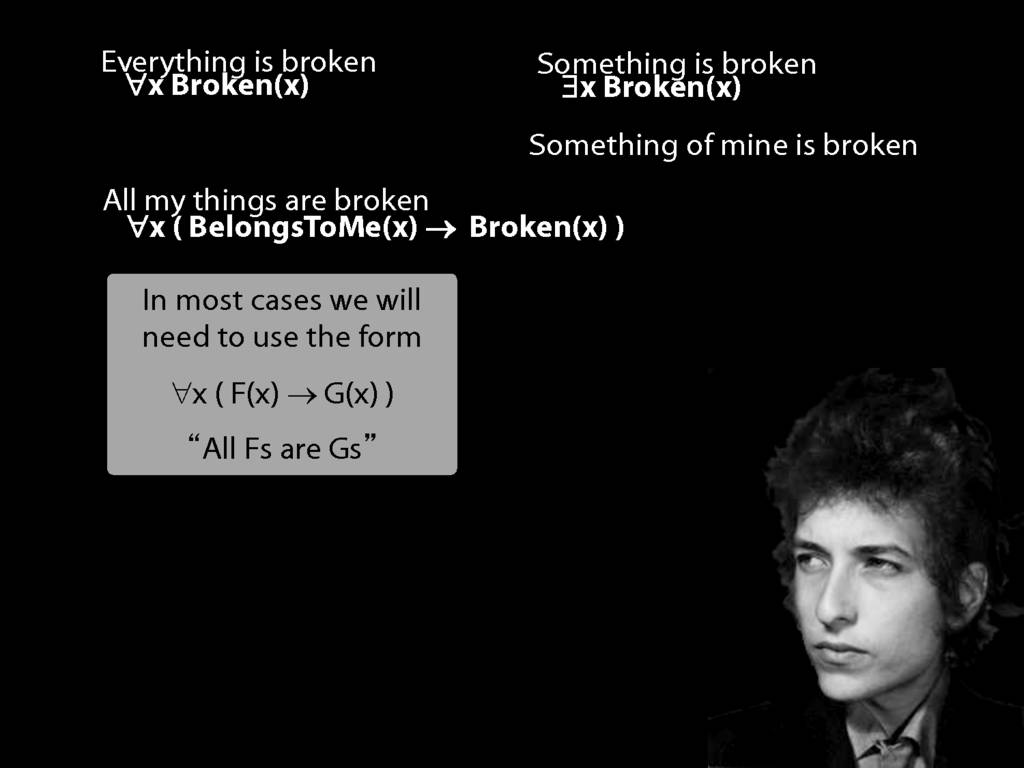
I think that, logically speaking, they were easily entertained---quite unlike you and me, of course.
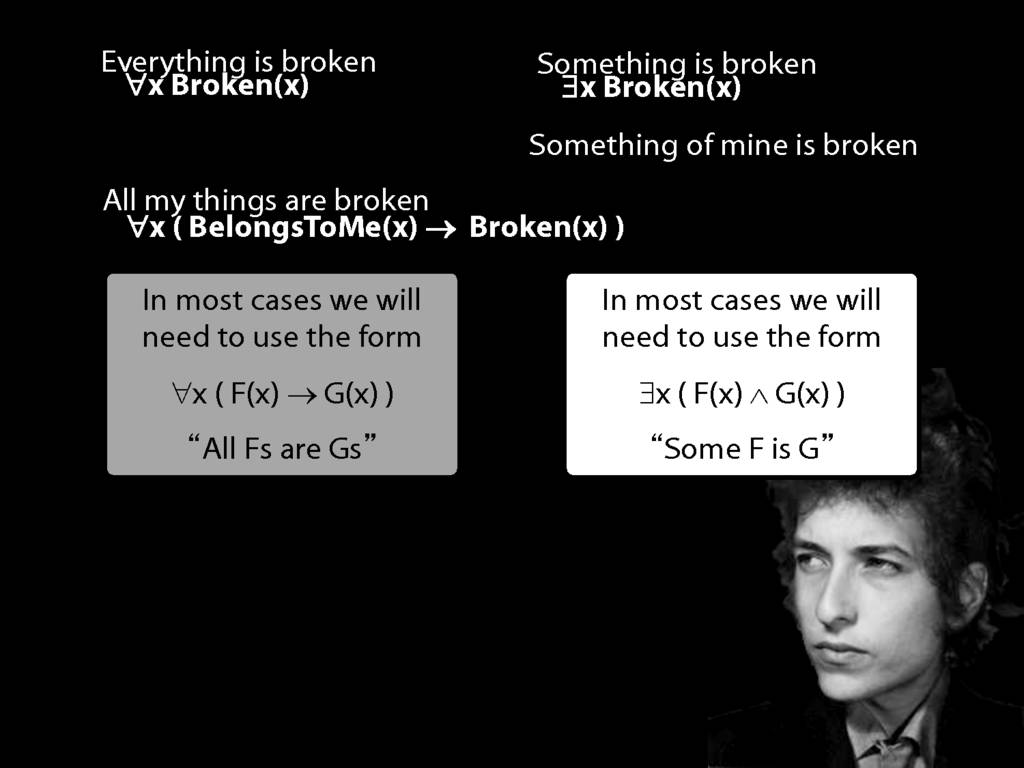
They were content to say some squares are blue or whatever,
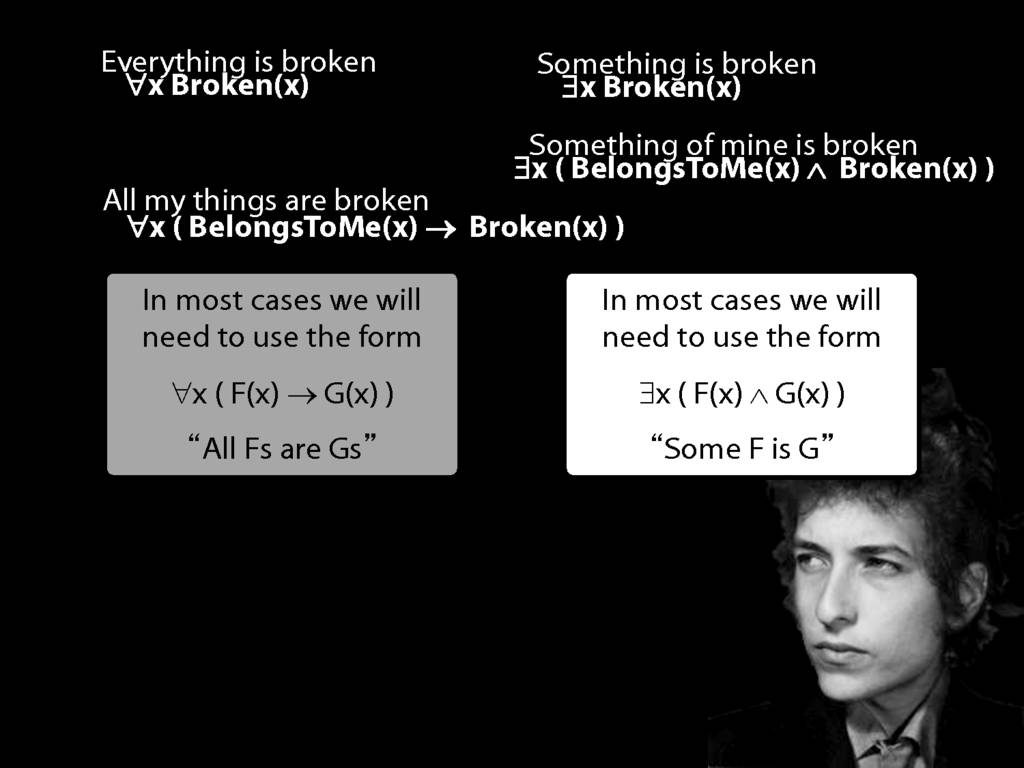
and you know they spent quite a long time sorting out the logic of sentences like these.
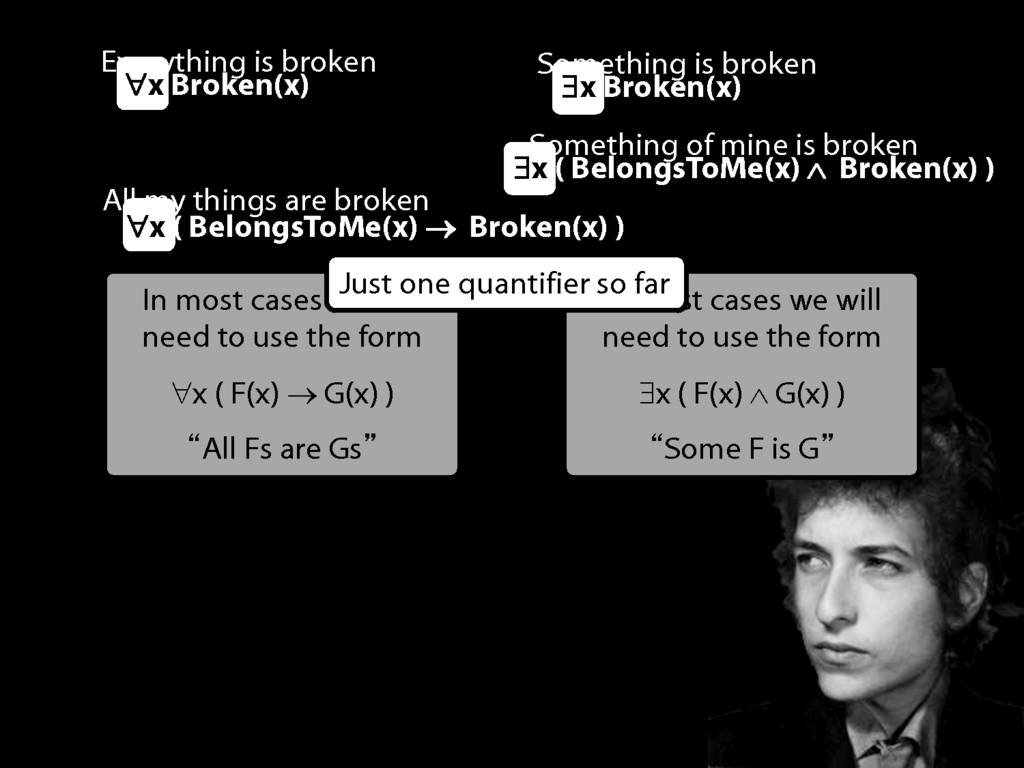
But the thing about these sentences is that they involve just one quantifier whereas, if you think about it, ...
... many ordinary senetnces are not like this.
Every time I go to the dentist someone dies.
Many ordinary sentences, like this line from Phoebe in friends, involve not just one quantifier ...
... but two. One of the big advances in modern logic is that it provides us with tools powerful enough to deal with sentences involving arbitrary combinations of quantifiers.
This is one main topic for the next lectures (another is proofs involving quantifiers).